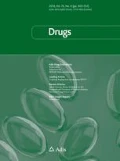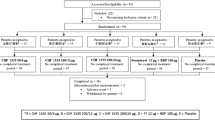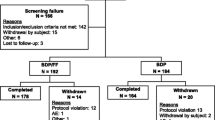Summary
Beclomethasone dipropionate, a halogenated corticosteroid ester, is now available in a pressurised aerosol inhaler2 for delivery to the bronchial mucosa of the chronic asthmatic. The rationale is to control asthma symptoms by the local application of a corticosteroid which although absorbed when given orally, at usual therapeutic doses by inhalation is active locally in the lung without causing the side-effects associated with systemically administered corticosteroids or corticotrophins.
Treatment should be commenced when the patient is in the best possible state. He should be instructed in the correct use of the inhaler, that it is not for rapid relief of an attack of airways obstruction, that it must be used regularly and that it may take 7 to 14 days to become fully effective.
The published clinical experience, although as yet limited, suggests that beclomethasone aerosol should have a useful therapeutic effect in most patients whose asthma cannot be adequately controlled by bronchodilators and sodium cromoglycate. It may also have a useful role in weaning some carefully selected patients from systemic steroids, although the studies published so far have not included definitive measurements of hypothalamic-pituitary-adrenal (HPA) axis function. In patients being maintained on moderate doses of oral steroids (e.g. from 7.5 to 10 mg prednisolone daily), gradual and careful transfer to beclomethasone aerosol has been achieved in some cases, and a reduction in dose of the oral steroid (to the equivalent of 5 mg prednisolone daily) in a few others. Initial evidence suggests that in general there is probably less to be gained by use of beclomethasone aerosol in patients requiring or dependent on large maintenance doses of oral steroids (e.g. more than 10 mg prednisolone daily), although it may be possible to reduce the dosage of oral steroids (to the equivalent of 7.5 mg prednisolone) in some cases.
In the initial experience, there have been no reports of systemic steroid side-effects, but there is a need to establish whether effective control is possible in long-term use without interfering with the integrity of the HPA axis. Definitive studies are also required to assess circumstances in which adequate recovery of adrenocortical function-might occur following slow and very careful transfer from long-term systemic steroids to the beclomethasone aerosol.
Similar content being viewed by others
References
Batten, J.C.; Clarke, S.W.; Gregg, I. and Hodson, Margaret E.: Corticosteroid withdrawal in asthma. British Medical Journal 1: 296 (1973).
Cayton, Ruth M. and Howard, P.: Adrenal failure in bronchial asthma. British Medical Journal 2: 547 (1973).
Beaven, D.W.; Espiner, E.A. and Donald, R.A.: Corticotrophin and corticosteroids. New Ethicals and Medical Progress 7: 61 (July 1970); 71 (Sept 1970).
Brown, H.M.; Storey, G. and George, W.H.S.: Beclomethasone dipropionate: A new steroid aerosol for the treatment of allergic asthma. British Medical Journal 1: 585 (1972).
Choo-Kang, Y.F.J.; Cooper, E. Jean; Tribe, A.E. and Grant, I.W.B.: Beclomethasone dipropionate by inhalation in the treatment of airways obstruction. British Journal of Diseases of the Chest 66: 101 (1972).
Clark, T.J.H.: Effect of beclomethasone dipropionate delivered by aerosol in patients with asthma. Lancet 2: 1361 (1972).
Gaddie, J.; Petrie, G.R.; Reid, I.W.; Sinclair, D.J.M.; Skinner, C. and Palmer, K.N.V.: Aerosol beclomethasone dipropionate in chronic bronchial asthma. Lancet 1: 691 (1973).
Grant, I.W.B.; Crompton, G.K.; Malone, D.N.S. and Choo-Kang, Y.F.J.: Treatment of asthma with beclomethasone aerosol. British Medical Journal 2: 110 (1972).
Harris, D.M.; Martin, L.E. and Tanner, R.J.: Asthma in the elderly. British Medical Journal 1: 111 (1973).
Herxheimer, H.: Beclomethasone aerosol in bronchial asthma. Lancet 1: 374 (1973).
Lal, S.; Harris, D.M.; Bhalla, K.K.; Singhai, S.N. and Butler, A.G.: Comparison of beclomethasone dipropionate aerosol and prednisone in reversible airways obstruction. British Medical Journal 3: 314 (1972).
Maberley, D.J.; Gibson, G.J. and Butler, A.G.: Recovery of adrenal function after substitution of beclomethasone dipropionate for oral corticosteroids. British Medical Journal 1: 778 (1973).
Report on Propaderm: New Ethicals and Medical Progress 5: 33 (April 1968).
Scott, A.: Beclomethasone aerosol. Journal of the Irish Medical Association 66: 190 (1973).
Author information
Authors and Affiliations
Additional information
‘Becotide’ (Allen & Hanburys).
Rights and permissions
About this article
Cite this article
Wilcox, J.B., Avery, G.S. Beclomethasone Dipropionate Corticosteroid Inhaler: A Preliminary Report of its Pharmacological Properties and Therapeutic Efficacy in Asthma. Drugs 6, 84–93 (1973). https://doi.org/10.2165/00003495-197306020-00002
Published:
Issue Date:
DOI: https://doi.org/10.2165/00003495-197306020-00002




